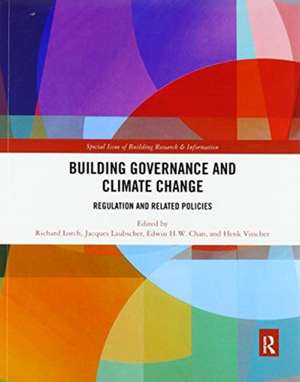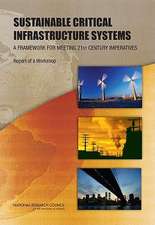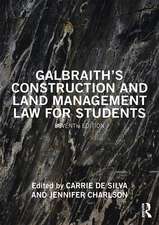Building Governance and Climate Change: Regulation and Related Policies
Editat de Richard Lorch, Jacques Laubscher, Edwin Hon-wan Chan, Henk Visscheren Limba Engleză Paperback – 30 iun 2020
Preț: 259.98 lei
Preț vechi: 311.41 lei
-17% Nou
Puncte Express: 390
Preț estimativ în valută:
49.76€ • 51.81$ • 42.05£
49.76€ • 51.81$ • 42.05£
Carte tipărită la comandă
Livrare economică 10-24 martie
Preluare comenzi: 021 569.72.76
Specificații
ISBN-13: 9780367519391
ISBN-10: 0367519399
Pagini: 254
Dimensiuni: 219 x 276 x 19 mm
Greutate: 0.45 kg
Ediția:1
Editura: Taylor & Francis
Colecția Routledge
Locul publicării:Oxford, United Kingdom
ISBN-10: 0367519399
Pagini: 254
Dimensiuni: 219 x 276 x 19 mm
Greutate: 0.45 kg
Ediția:1
Editura: Taylor & Francis
Colecția Routledge
Locul publicării:Oxford, United Kingdom
Public țintă
Postgraduate, Professional, and UndergraduateCuprins
Introduction: Building governance and climate change: roles for regulation and related polices Part I: Impact of building regulations on the built environment 1. Sustainability and resiliency objectives in performance building regulations 2. The realpolitik of building codes: overcoming practical limitations to climate resilience Part II: Inadequacy of current building regulatory systems 3. Transforming building regulatory systems to address climate change 4. The impact of regulations on overheating risk in dwellings Part III: Addressing the performance gap 5. Framework for selecting occupancy-focused energy interventions in buildings 6. Improved governance for energy efficiency in housing Part IV: Innovative policy solutions 7. Energy efficiency and the policy mix 8. Alternative building emission-reduction measure: outcomes from the Tokyo Cap-and-Trade Program 9. Governance strategies to achieve zero-energy buildings in China 10. Multilevel governance for building energy conservation in rural China 11. The evolution of green leases: towards inter-organizational environmental governance Part V: Historic buildings 12. Governance of heritage buildings: Australian regulatory barriers to adaptive reuse Part VI: Financial incentives 13. Regulatory incentives for green buildings: gross floor area concessions Part VII: Future governance 14. The new governance for low-carbon buildings: mapping, exploring, interrogating 15. Reducing CO2 emissions from residential energy use Part VIII: Enforcement 16. Comparative review of building commissioning regulation: a quality perspective
Notă biografică
Richard Lorch studied architecture at Washington University, USA, and the University of Cambridge, UK, and is a licensed architect. He is a researcher, writer, policy consultant on energy and buildings, and the editor in chief of Building Research & Information.
Jacques Laubscher is a practising architect and academic. He is currently head of the technology research group in the Department of Architecture at the Tshwane University of Technology, South Africa.
Edwin H. W. Chan is a Chartered Architect (Authorized Person), Chartered Surveyor and also a Barrister-at-Law called to the UK and Hong Kong Bars. He obtained his Ph.D. from King’s College, University of London, UK.
Henk Visscher is Full Professor in Housing Quality and Process Innovation at Delft University of Technology, where he is director of the Graduate School in the faculty of Architecture and the Built Environment.
Jacques Laubscher is a practising architect and academic. He is currently head of the technology research group in the Department of Architecture at the Tshwane University of Technology, South Africa.
Edwin H. W. Chan is a Chartered Architect (Authorized Person), Chartered Surveyor and also a Barrister-at-Law called to the UK and Hong Kong Bars. He obtained his Ph.D. from King’s College, University of London, UK.
Henk Visscher is Full Professor in Housing Quality and Process Innovation at Delft University of Technology, where he is director of the Graduate School in the faculty of Architecture and the Built Environment.
Descriere
This book investigates how building regulatory systems are addressing the current and future effects of climate change, and how these systems can be improved. This book was originally published as a special issue of the Building Research & Information journal.












